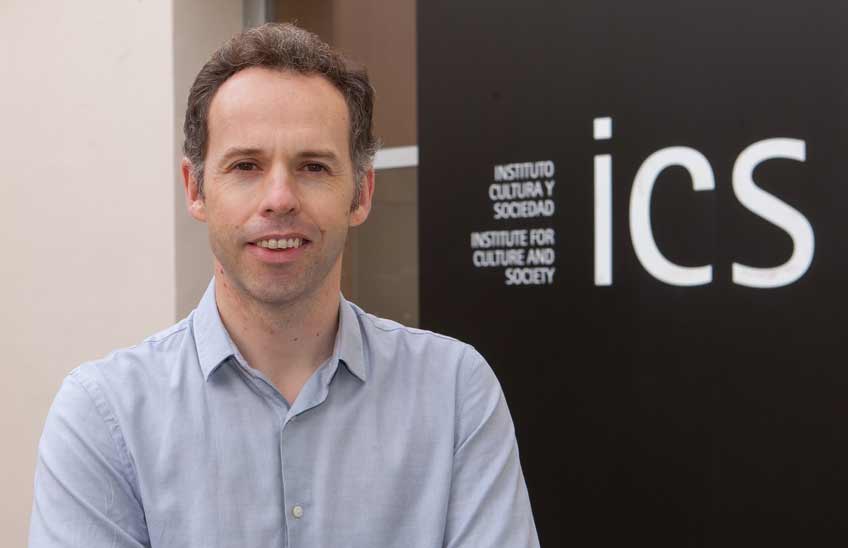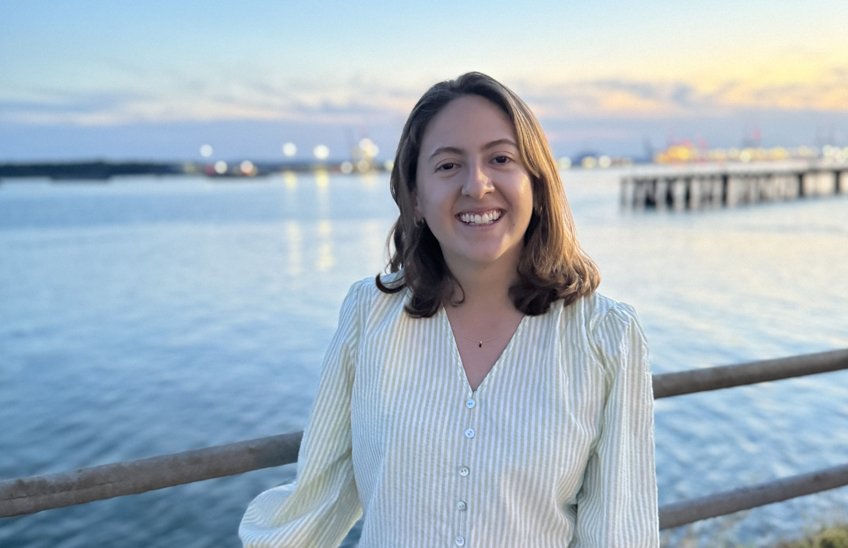"The cutting-edge techniques with which the brain is studied do not read the mind."
Javier Bernácer, researcher of the ICS of the University of Navarra and director scientist of the CINET of the Tatiana Foundation, is one of the speakers of the course 'Neuroscience, cognitive science and artificial intelligence'.

FotoManuel Castells/<br>Javier Bernácer, investigador del Instituto Cultura y Sociedad (ICS) de la Universidad de Navarra y del Centro Internacional de Neurociencia y Ética (CINET)
18 | 06 | 2021
"The state-of-the-art techniques used to study the brain record the activity of this organ, but they do not read the mind". This has been assured by Javier Bernácer, researcher of the Institute for Culture and Society (ICS) of the University of Navarra and the International Center for Neuroscience and Ethics (CINET) of the Tatiana Pérez de Guzmán el Bueno Foundation.
The expert is one of the speakers at the first intensive course that begins today and will continue on 18, 19, 25 and 26 June, together with the ICS's group Mind-Brain, under the degree scroll 'Neuroscience, cognitive science and artificial intelligence'. Among other current issues, the programme will address cutting-edge techniques for studying the human nervous system, the ethical-legal challenges of artificial intelligence and the latest discoveries on how artificial intelligence and human intelligence differ and resemble each other.
According to agreement , two of the most promising techniques for researching the brain are optogenetics, which consists of stimulating neurons through light, and intracranial recordings, which are based on the introduction of electrodes into this organ. He also points out that in more advanced techniques such as electroencephalography or functional magnetic resonance imaging, great strides have also been made thanks to artificial intelligence and machine learning.
"These advances are expected to be useful for people who have lost their speech - through the recognition of patterns of words they are thinking about - or mobility, for the management of mechanical prostheses," he says.
Neuroscience, cognitive science and artificial intelligence
The course is part of CINET's line that promotes the research multidisciplinary on the human brain. For this reason, experts from the scientific, technological and humanistic fields will take part. One of the objectives will be to overcome the metaphor of the brain as a computer to propose a new paradigm aligned with recent neuroscientific advances and the contributions of the Humanities.
"To understand the human being, interdisciplinary dialogue is necessary. Neuroscience has to talk to engineering, but also to other fields such as psychology or Philosophy, which study the mind and the brain as a whole," stresses CINET's scientific director .
In the course, which has an in-person and online format, recognized experts such as Ramón López de Mántaras, director of high school of research of Artificial Intelligence (IIIA-CSIC) and honorary member of the association European Artificial Intelligence (EurAI) will intervene; Elisa Martín, director of the Health environment of the high school of Engineering of the knowledge (IIC); and José Ignacio Latorre, director of research of high school of Technology Innovation (Abu Dhabi), director of the Center for Quantum Technologies (Singapore) and Full Professor of Quantum Physics of the University of Barcelona, among others.

